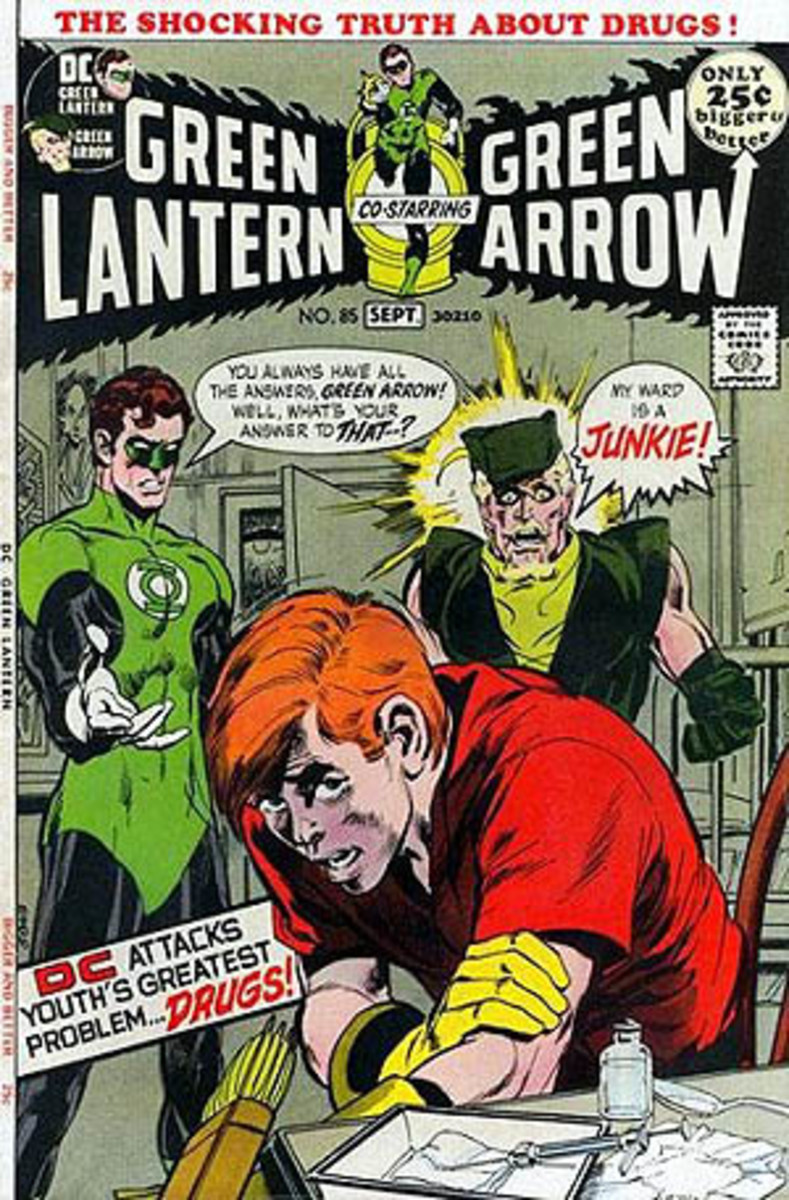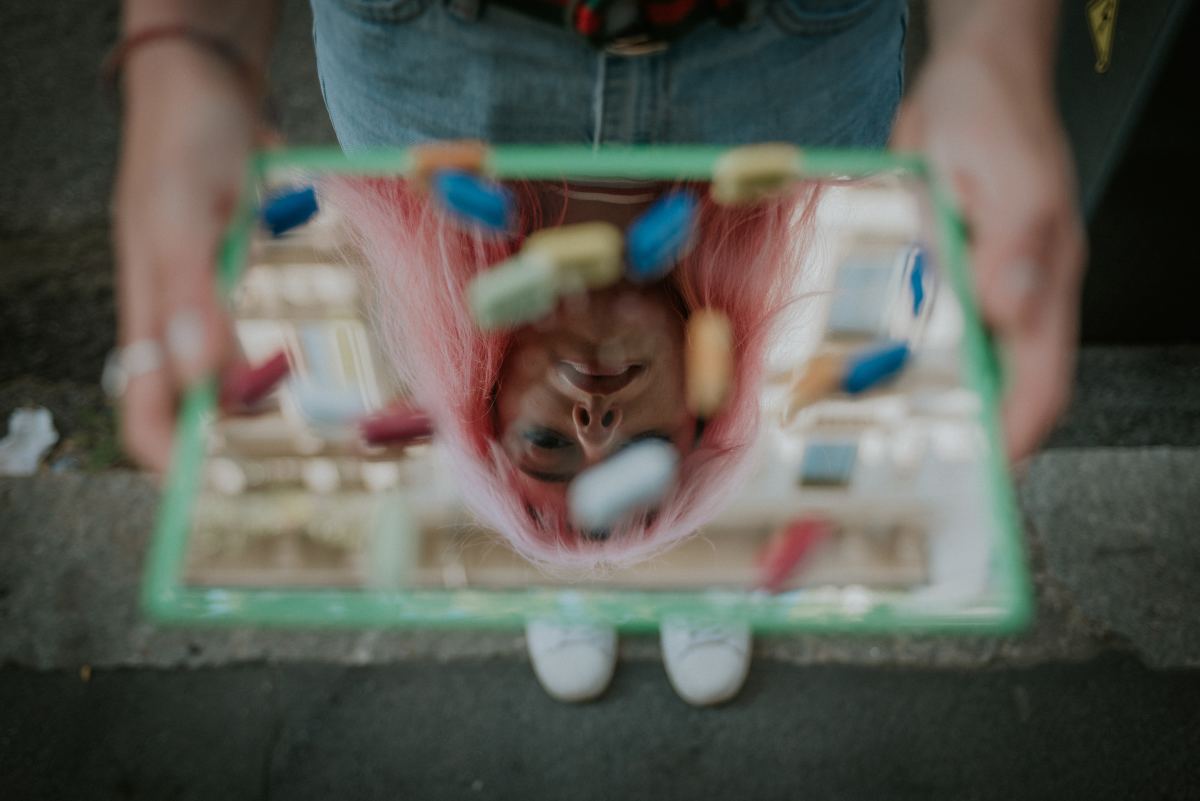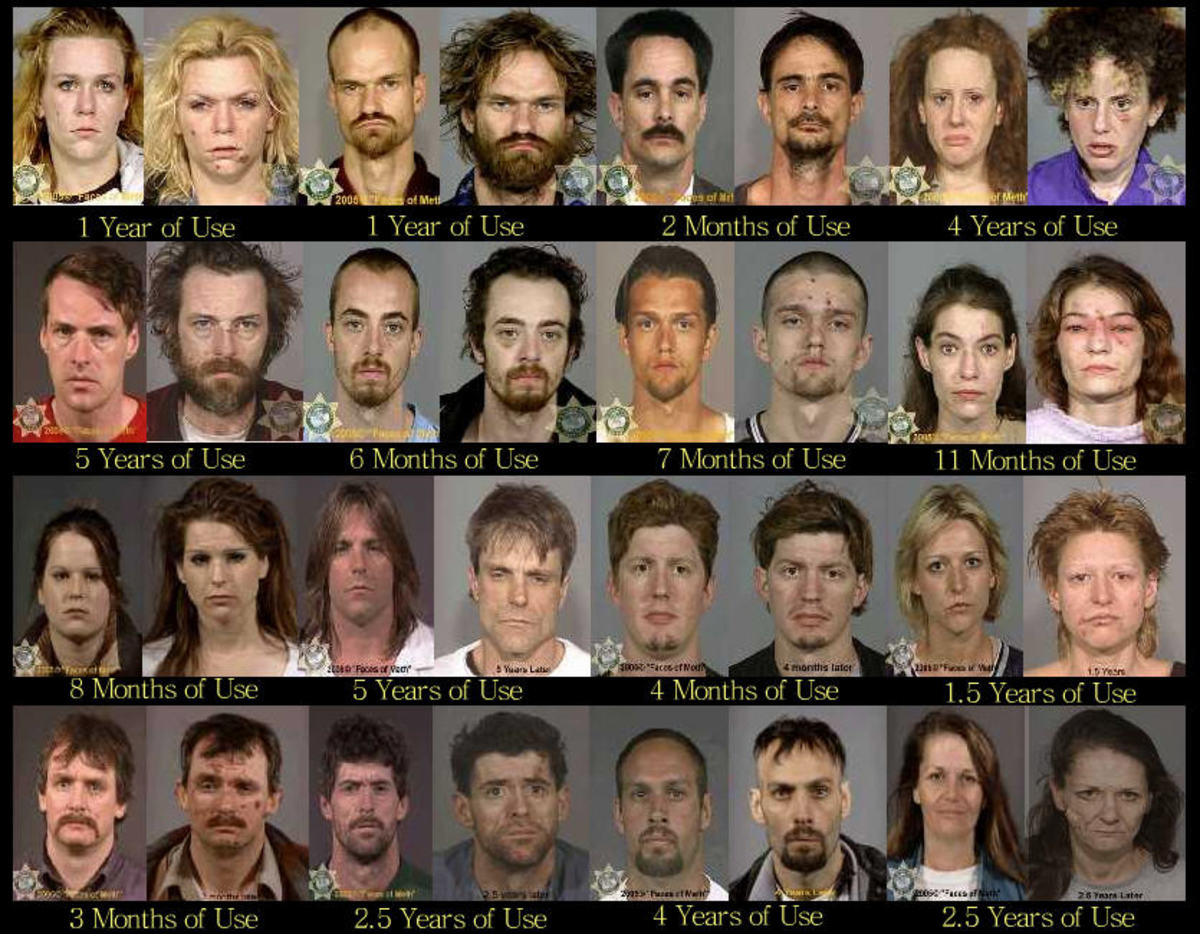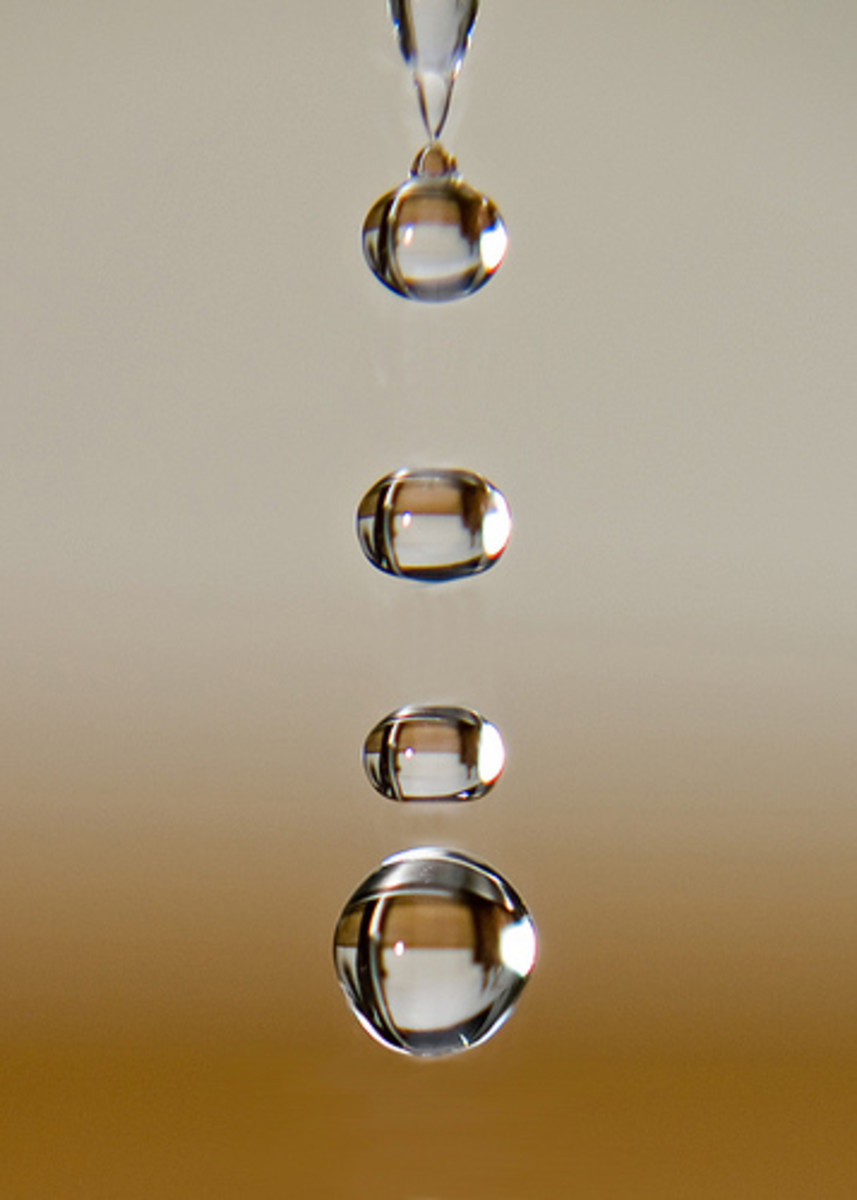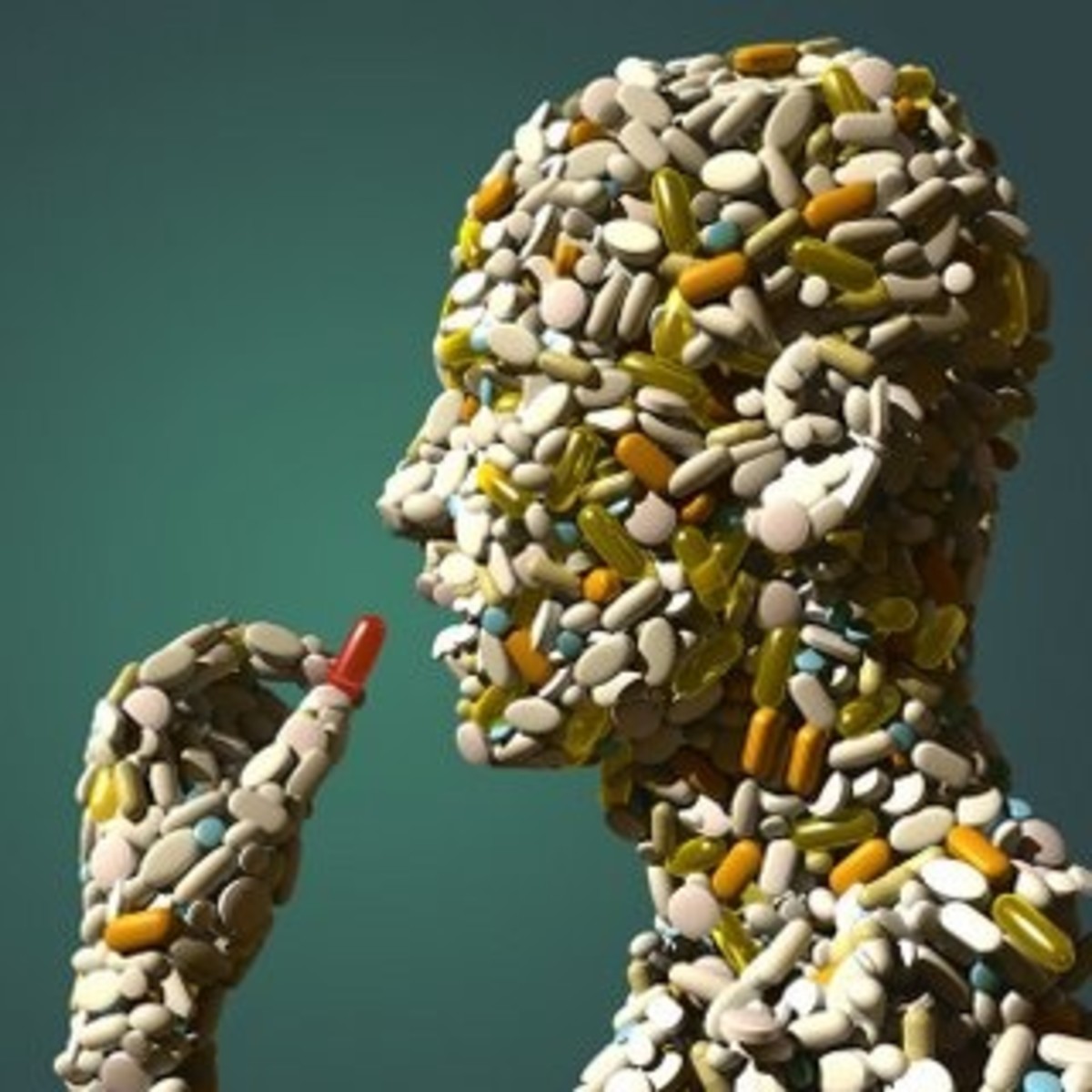- HubPages»
- Health»
- Mental Health»
- Addiction
Addiction: A Disease or a Choice?
The Debate: Is Addiction A Disease Or Is It A Choice?
Addiction has long been a controversy of whether it is a disease or a choice. Many people believe that addicts chose to become addicts because they chose to use the drugs in the first place. However, addiction has also been researched to run in genetics. I come from a family of alcoholics and while I have not succumbed to it myself, I definitely have had my struggles. The best way to look at addiction is from the nurture or nature viewpoint. In this perspective, we look at the way an individual grows up and the environment they develop in. There is also the question of whether they were neglected as a child or had traumas that may have led them to need to fill a void. I believe that genetics can have a lot to do with drug addiction, yet the environment we surround ourselves in has an even larger impact. Most individuals do not decide, "well I think I want to be a drug addict." From my experience, most people I have met that struggled with drugs, usually did so for a very long time since they were younger. Most drug addicts have other mental health problems which can also be genetic as well.
Drug addiction can be a choice AND later turn into disease
Model Of Change
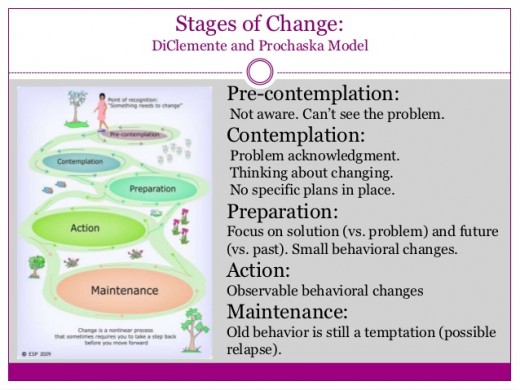
Why Don't They Want Help?
Stages Of Change
When we think of those suffering with cancer or diseases, we dont often hear them refusing treatment or asking to be left alone in complete denial of their condition. This is something that happens with drug addiction quite often. The stages of change impact whether an individual is ready to get help. When they are still in the pre-contemplation stage, they do not believe they have a problem and definitely do not want help or anyone to bother them. After this comes contemplation by which an individual realizes there is an issue but has not done anything to fix it. How many times have you heard a loved one say, "Oh, I'll stop next week, I'm fine". This is common in this stage but they are also plagued with obstacles like DUI's or possession charges among other events that can happen from dealing with the drug world. When an individual reaches the next stage Preparation, they realize they have an issue and they understand they have to change. They are internally deciding a plan to change this behavior and get away from the drugs. The next stage is called action and this is where an individual is actively working at recovery followed by maintenance by which an individual has to work towards staying sober. This would be one of the hardest of all because maintaining sobriety is not easy and can be a lifelong challenge. Relapses happen often throughout these stages, while sometimes a lapse may be present but they are able to get back on the wagon.
What Can You Do To Help A Loved One?
The hardest part of having a loved one struggling with addiction is that all too often they do not want help and there is only so much you can do to help them. You can try being supportive, or try using tough love. However, only they can change and only if they want it for themselves. Many times, they have to hit rock bottom before realizing they need to change. The only thing you can do as a loved one is to work on yourself and give support when you can. It is very difficult to have to watch a loved one slowly kill themselves but we only have so much control over helping them. The best thing you can do is to avoid enabling them even though it may cause pain to see them suffer.
How To Deal With Addiction
Impact of Drugs on Our Brain
Drug addiction comes in many forms. Illegal drugs are what we think about most when we think of addiction. However, prescription painkillers are at an all time high for addiction and overdoses. Even these opiates can change the brain and after some legal use, can cause addiction and an individual to be incapable of functioning without it, leading to doing all it takes to avoid these withdrawals and searching for that high. Drugs impact the brain by flooding it with dopamine, a natural pleasure chemical known as a neurotransmitter. The first use of a drug gives us such pleasure from the dopamine that we constantly feel the need to chase that feeling, and our brain chemicals change completely. When this occurs, our brain realizes it does not need natural dopamine and when we stop using, we are depleted and starving for it. While using, such an increase in dopamine can cause psychosis, paranoia, and even schizophrenia. While using is usually a choice initially, the damage to the brain and negatively impacted chemicals can cause disease.
The Aftermath of Drugs
At this point, an addict loses control of their natural impulses, decisions, and rationality. Once an addiction is formed and damage is done to the brain, we lose control of our lives. Addicts do things they would never do when sober, because if they stop they feel the awful effects of withdrawal. Most addicts will do just about anything to avoid this physical and mental hell becoming incapable of managing their own behavior.

